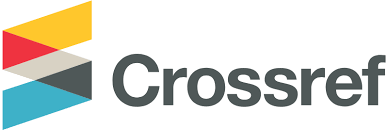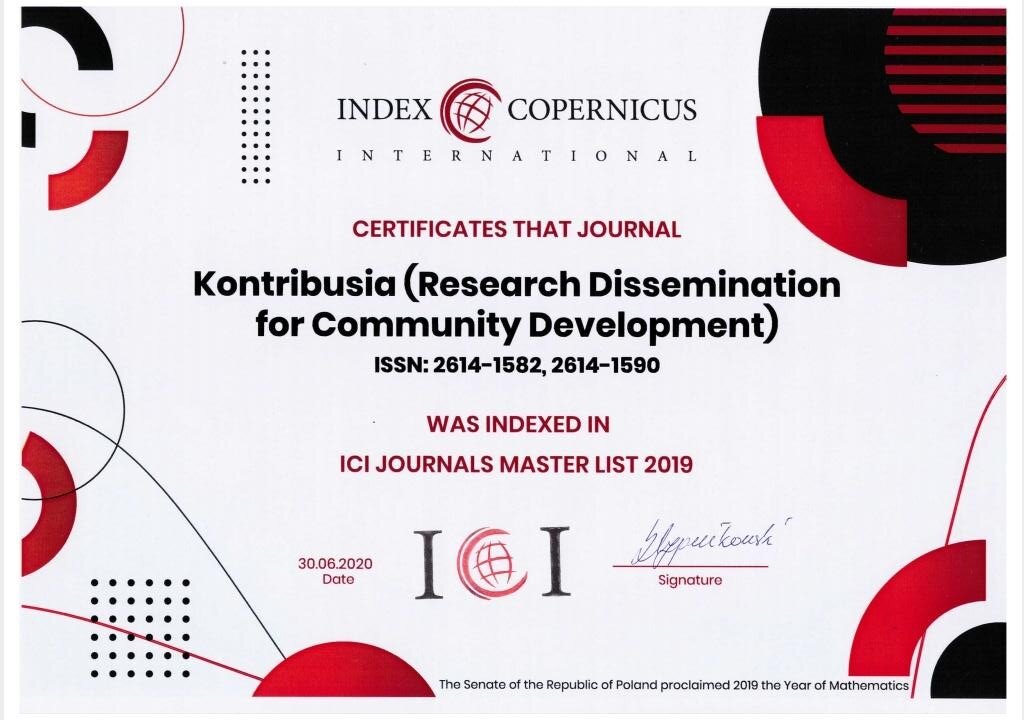Efforts To Make Processed Food From Melon Fruit As An Alternative Business In Improving Family Welfare
DOI:
https://doi.org/10.30587/kontribusia.v4i1.1587Keywords:
Additional income, added value, community empowerment, Well-beingAbstract
Economic prosperity is always expected by every family. A family is said to be prosperous when it can fulfill all its basic needs. Apart from working to get a regular salary every family would expect to be able to get additional income in an effort to gain financial freedom or have financial sufficiency for family needs. Additional income can be made by each family and possible through creativity and innovation. For housewives in the urban environment it is not impossible to be able to help families in increasing income, through the process of processing fruit into fruit dodol, the economic empowerment of the family is carried out and is expected to be able to provide additional family income. Community service activities carried out by the UMG Postgraduate study program are to create a synergy between the availability of Melon fruit raw materials and the availability of Human Resources. This activity can provide an alternative to how processed foods from tropical fruits that are found in traditional markets can be an alternative business. This fruit's raw material is very easy to find, elements of innovation and creativity are needed in processing it to be a food product that is worth selling or marketed. The activity of processing melons into dodol fruit is an effort to create added value. The recipe trial results have been carried out three times to produce sweet and legit dodol melons. The processed fruit dodol can be served as a snack in the afternoon or can also be treated at Eid. Efforts to create added value in this fruit can be an alternative for housewives in an effort to increase family income. The creation of a community economic sufficiency through family economic empowerment makes the community prosperous
Economic prosperity is always expected by every family. A family is said to be prosperous when it can fulfill all its basic needs. Apart from working to get a regular salary every family would expect to be able to get additional income in an effort to gain financial freedom or have financial sufficiency for family needs. Additional income can be made by each family and possible through creativity and innovation. For housewives in the urban environment it is not impossible to be able to help families in increasing income, through the process of processing fruit into fruit dodol, the economic empowerment of the family is carried out and is expected to be able to provide additional family income. Community service activities carried out by the UMG Postgraduate study program are to create a synergy between the availability of Melon fruit raw materials and the availability of Human Resources. This activity can provide an alternative to how processed foods from tropical fruits that are found in traditional markets can be an alternative business. This fruit's raw material is very easy to find, elements of innovation and creativity are needed in processing it to be a food product that is worth selling or marketed. The activity of processing melons into dodol fruit is an effort to create added value. The recipe trial results have been carried out three times to produce sweet and legit dodol melons. The processed fruit dodol can be served as a snack in the afternoon or can also be treated at Eid. Efforts to create added value in this fruit can be an alternative for housewives in an effort to increase family income. The creation of a community economic sufficiency through family economic empowerment makes the community prosperous










